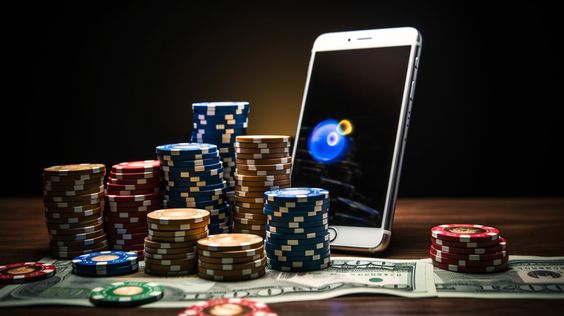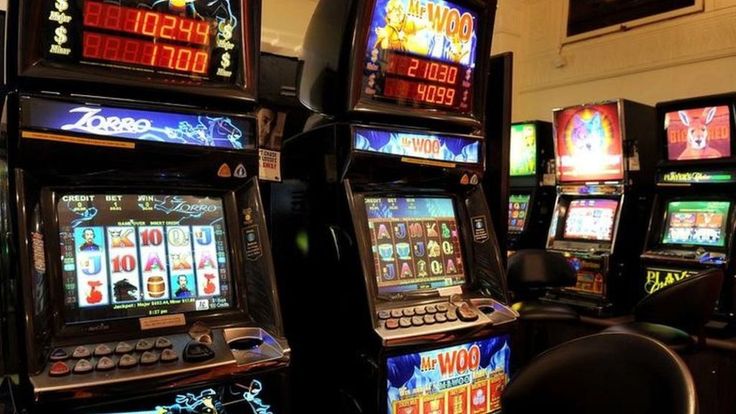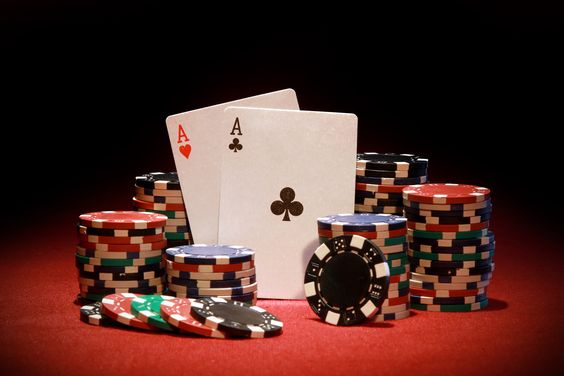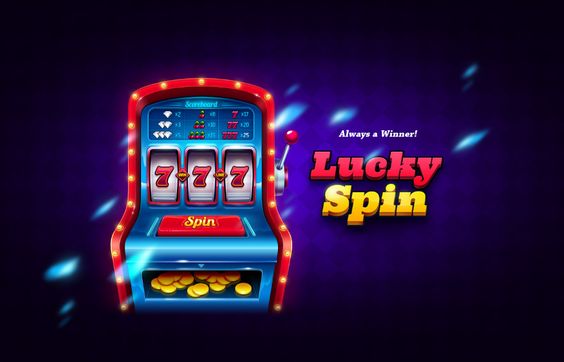
The Psychology Behind Slot Machine Addiction
admin
- 0
Slot machine addiction is a significant issue, impacting millions of individuals worldwide. This form of addiction is not merely about the potential for financial loss, but it is deeply rooted in the psychological manipulation and neurobiological mechanisms that drive addictive behavior. Understanding the psychology behind slot machine addiction requires a multi-faceted approach, examining how the design of these machines, combined with individual vulnerabilities, leads to compulsive gambling. In this post, we’ll explore the psychological principles, the role of the brain’s reward system, and the social and environmental factors that contribute to slot machine addiction.
The Allure of Slot Machines
The Basics of Slot Machine Design
Slot machines are designed to be engaging and appealing. Bright lights, captivating sounds, and vibrant colors are all part of the package intended to attract players. The layout of a casino, with slot machines prominently displayed, also plays a crucial role. This design creates an environment that is both exciting and inviting, encouraging players to try their luck.
The Randomness Factor
One of the core features of slot machines is their randomness. Unlike other forms of gambling, such as poker or blackjack, where skill can influence the outcome, slot machines rely entirely on chance. This randomness is a critical factor in their addictive potential. The unpredictability of winning creates a powerful psychological effect known as the “near-miss” phenomenon. When players experience near-misses—results that are close to a win but ultimately a loss—they are more likely to continue playing. This near-miss effect triggers the same brain regions associated with actual wins, reinforcing the gambling behavior.
The Role of Reinforcement

Operant Conditioning
Slot machines are a classic example of operant conditioning, a learning process first described by psychologist B.F. Skinner. Operant conditioning involves the use of rewards and punishments to shape behavior. In the context of slot machines, the reward is a payout, while the punishment is a loss. The intermittent reinforcement schedule used by slot machines—where rewards are given at unpredictable intervals—creates a strong compulsion to keep playing. This type of reinforcement is particularly powerful because it keeps players engaged, hoping that the next spin will be a win.
Dopamine and the Brain’s Reward System
The brain’s reward system plays a crucial role in slot machine addiction. When a player wins or experiences a near-miss, the brain releases dopamine, a neurotransmitter associated with pleasure and reward. This dopamine release creates a sense of euphoria and reinforces the desire to continue gambling. Over time, the brain starts to crave this dopamine release, leading to compulsive gambling behavior. Studies have shown that the brains of pathological gamblers respond to gambling in much the same way as the brains of drug addicts respond to their substance of choice.
Psychological Manipulation Techniques
Losses Disguised as Wins
Slot machines often use a technique known as “losses disguised as wins” (LDWs). This occurs when a player receives a payout that is smaller than their original bet, but the machine still celebrates the event with lights and sounds as if it were a win. This creates the illusion of winning, even when the player is actually losing money. LDWs contribute to the player’s perception that they are winning more often than they actually are, encouraging continued play.
Near-Misses and Illusions of Control
As mentioned earlier, near-misses are a powerful psychological tool used by slot machines. They create a sense of almost winning, which can be more motivating than an actual win. This effect is amplified by the illusion of control, where players believe that they can influence the outcome of the game through their actions, such as the timing of their button presses. In reality, slot machines are entirely random, but the illusion of control keeps players engaged.
Individual Vulnerabilities
Personality Traits
Certain personality traits can make individuals more susceptible to slot machine addiction. Traits such as impulsivity, sensation-seeking, and a tendency toward boredom can increase the likelihood of developing a gambling problem. Impulsive individuals may find it difficult to resist the temptation to keep playing, while sensation-seekers may be drawn to the excitement and thrill of gambling.
Psychological Disorders
There is a strong correlation between slot machine addiction and other psychological disorders. Individuals with depression, anxiety, and substance abuse disorders are at a higher risk of developing gambling problems. Gambling can serve as a form of escapism for these individuals, providing temporary relief from their psychological distress. However, this relief is short-lived and often leads to a vicious cycle of addiction.
Social and Environmental Factors
The Casino Environment
The design of casinos plays a significant role in promoting slot machine addiction. Casinos are meticulously designed to keep players engaged and spending money. There are no clocks or windows, which makes it easy for players to lose track of time. The layout is often confusing, with slot machines placed in a way that encourages exploration and prolonged play. Free drinks and other amenities further entice players to stay longer and continue gambling.
Social Influence
Social influence is another critical factor in slot machine addiction. Individuals who have friends or family members who gamble are more likely to develop gambling problems themselves. The normalization of gambling behavior within a social group can make it seem like a harmless activity, increasing the likelihood of addiction. Additionally, social isolation and loneliness can drive individuals to seek companionship and excitement in casinos, leading to problem gambling.
The Path to Addiction
The Initial Stage
For many individuals, slot machine addiction begins innocently enough. They might start playing for fun or out of curiosity. The initial wins and the excitement of the game create a positive association with gambling. This stage is often marked by occasional play and a general sense of enjoyment.
The Escalation Stage
As individuals continue to gamble, they may begin to experience the reinforcement effects of intermittent wins and near-misses. The brain’s reward system becomes more engaged, and the individual starts to crave the dopamine release associated with gambling. This stage is characterized by increased frequency and duration of play. The individual may start to spend more money and time on slot machines, often at the expense of other activities and responsibilities.
The Compulsive Stage
In the compulsive stage, gambling behavior becomes uncontrollable. The individual may experience intense cravings to gamble and find it difficult to stop, even when faced with negative consequences. Financial problems, relationship issues, and a decline in mental and physical health are common at this stage. The individual may go to great lengths to obtain money for gambling, including borrowing or stealing. This stage is marked by a significant loss of control and a deep sense of despair.
Treatment and Recovery
Recognizing the Problem
The first step in overcoming slot machine addiction is recognizing the problem. This can be challenging, as denial is a common feature of addiction. Individuals may downplay the severity of their gambling behavior or rationalize it as a harmless pastime. However, acknowledging the issue is crucial for seeking help and beginning the recovery process.
Seeking Professional Help
Professional help is often necessary for overcoming slot machine addiction. Therapists and counselors who specialize in gambling addiction can provide valuable support and guidance. Cognitive-behavioral therapy (CBT) is particularly effective for treating gambling addiction. CBT helps individuals identify and change the thought patterns and behaviors that contribute to their addiction. In some cases, medication may be prescribed to address underlying mental health issues, such as depression or anxiety.
Support Groups
Support groups, such as Gamblers Anonymous, can also play a vital role in recovery. These groups provide a safe and supportive environment where individuals can share their experiences and receive encouragement from others who are facing similar challenges. Support groups can help individuals feel less isolated and more motivated to stay on the path to recovery.
Lifestyle Changes
Making positive lifestyle changes is an essential part of recovery. This might include finding new hobbies and activities to replace gambling, improving physical health through exercise and a healthy diet, and strengthening relationships with family and friends. Building a balanced and fulfilling life can help reduce the temptation to gamble and support long-term recovery.
Conclusion
Slot machine addiction is a complex and multifaceted issue, driven by psychological, neurobiological, and social factors. The design of slot machines, with their use of reinforcement and psychological manipulation techniques, plays a significant role in promoting addictive behavior. Individual vulnerabilities, such as personality traits and psychological disorders, further increase the risk of addiction. The casino environment and social influences also contribute to the development and maintenance of gambling problems.
Recognizing the problem, seeking professional help, and making positive lifestyle changes are crucial steps in overcoming slot machine addiction. Recovery is a challenging but achievable goal, and with the right support and resources, individuals can break free from the grip of addiction and lead fulfilling lives.
FAQs
1. What are the signs of slot machine addiction?
Signs of slot machine addiction include spending excessive time and money on gambling, experiencing intense cravings to gamble, neglecting responsibilities, and continuing to gamble despite negative consequences.
2. How do slot machines manipulate players?
Slot machines use techniques such as intermittent reinforcement, near-misses, and losses disguised as wins to create a compelling and addictive experience. These methods manipulate the brain’s reward system and reinforce gambling behavior.
3. Can slot machine addiction be treated?
Yes, slot machine addiction can be treated. Cognitive-behavioral therapy, support groups, and lifestyle changes are effective strategies for overcoming addiction. Professional help from therapists and counselors is often necessary for recovery.
4. What role does dopamine play in slot machine addiction?
Dopamine is a neurotransmitter associated with pleasure and reward. When individuals gamble, their brains release dopamine, creating a sense of euphoria and reinforcing the desire to continue gambling. Over time, the brain craves this dopamine release, leading to compulsive gambling behavior.
5. Are certain individuals more prone to slot machine addiction?
Yes, certain personality traits and psychological disorders increase the risk of slot machine addiction. Impulsivity, sensation-seeking, depression, anxiety, and substance abuse disorders are common factors that contribute to gambling problems.
The invention of slot machines can be traced back to the late 19th century. The very first slot machine was developed in 1891 by a company in Brooklyn, New York. This early version of the slot machine featured five drums with playing card symbols, and players would pull a lever to spin the drums. 8kbet

